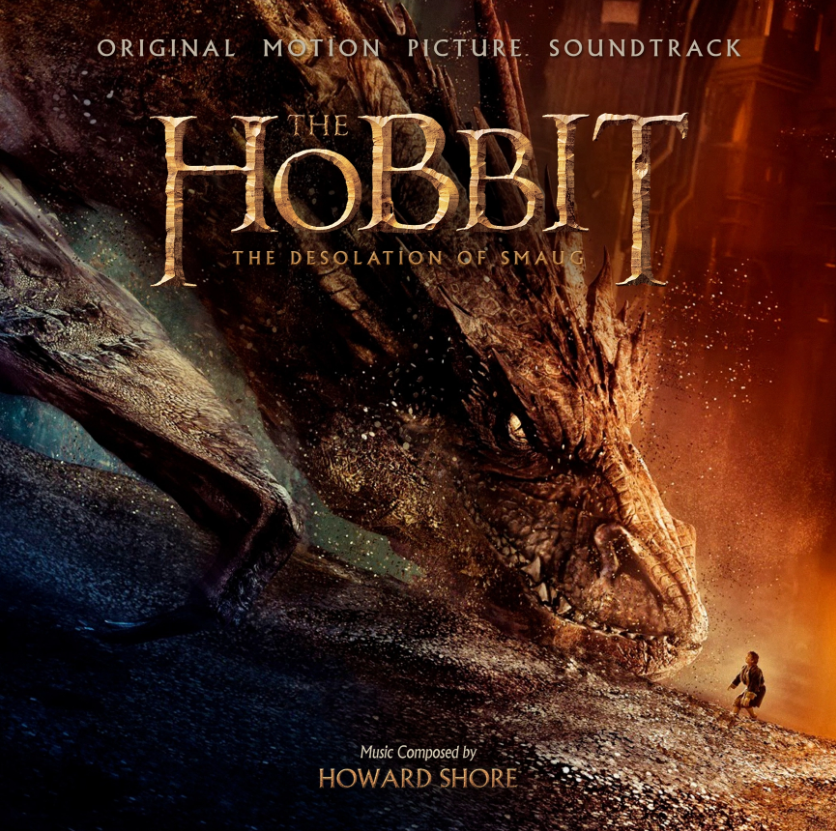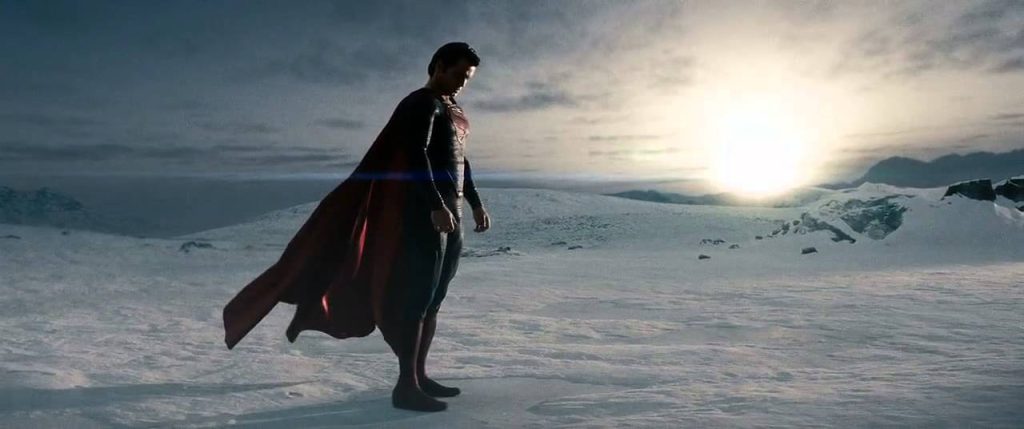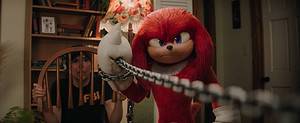This year has earned several monikers, but among them is one you may not have known–the year of the film score composers. Think about these three cornerstones of 2022 so far:
- Hans Zimmer, the nerd maestro, earned an Oscar, a BAFTA, and a Grammy for Best Film Score
- Michael Giacchino easily created his magnum opus with the film score of The Batman (and that wasn’t even enough to get him on this list)
- Jonny Greenwood had a year that was doubly impressive with his scores for The Power of the Dog and Spencer
- And we still have movies like The Northman, Doctor Strange and the Multiverse in Madness, Top Gun: Maverick (welcome back, Harold Faltermeyer), Phantom of the Opera, and Jurassic Park: Dominion on the way.
If you adore film scores–the actual music without words–as we do, you know this has already been a fantastic year. But that begs the question: film enthusiasts, cinephiles, and movie geeks have been arm wrestling over for years. Are you ready with your guesses? Do you know who is the GOAT of film scores? Can you even name more than three?
Listicle Qualifications:
- Iconic themes
- Visceral emotion
- Film awards
- Sales
- Pop culture legacy
Here are the Top 10 Film Score Composers of All Time
Honorable Mentions:

This listicle was nearly impossible to narrow down to the Top 10, but we did it. Before preparing your diatribe of hate because one of your favorite film score composers isn’t on this list (barring you read this first), understand the corequisites first.
This is a life’s body of work versus your GOATed film. This is the entire scope of legacy in the field rather than someone who is top-of-mind today. Just because you weren’t alive during some of these films doesn’t mean they don’t matter. Yet, here are some who were just a bit outside:
- Howard Shore – The Lord of the Rings trilogy alone qualifies him here, but he is also the composer of Se7en, Gangs of New York, Philadelphia, and The Silence of the Lambs. If he isn’t in the Top 10, you know this list is worth fighting over.
- Thomas Newman – Newman’s signature strings elevate emotions in films like Finding Nemo, American Beauty, and this flick, The Shawshank Redemption. An anomaly among film score composers, he has won live-action and animated films awards.
- Joe Hisaishi – If you are an anime fan, may I introduce your GOAT. Do you recognize Hayao Miyazaki’s name? He is the visionary behind Spirited Away, Ponyo, Princess Mononoke, and Castle in the Sky. Even Studio Ghibli had a section devoted to him.
- Alan Silvestri – The guy is a badass composer. Just listen to the Avengers, and you’ll know why. But he also doesn’t get half the credit he deserves. Listen to the themes of The Polar Express, Back to the Future, and Forrest Gump, and you’ll know why here too.
- Max Steiner – Who? It’s okay because he’s probably before everyone’s time, but when you are known as the “Father of Modern Film Music,” that means a lot! Born in 1888, he has more than 300 films to his credit, including Gone With the Wind and King Kong.
10. James Horner (1953-2015)
There is no way this list doesn’t begin with James Horner. He could flow from action to sci-fi to epic period pieces with ease. Horner was respected as a master of time and space with moving film scores like Field of Dreams, Braveheart, Avatar, and Titanic, the top-selling orchestral album in history.
If that list wasn’t enough to impress you, did you watch Glory and cry when the music hits the moment Denzel’s tear slowly makes its way down his cheek? That’s James Horner. Did you feel a creep factor behind Aliens? Horner shoots and scores here too.
- Credits: 156
- Most Memorable Score: Titanic or Braveheart
- Awards: 2 Oscars (both for Titanic…and how Braveheart didn’t win an Oscar, we’ll never know), 2 Grammys (both for An American Tail), another 51 wins of 89 nominations
- Fun Fact: Watch the Universal Pictures logo in movies from the ’90s. That is Horner’s theme.
9. Jerry Goldsmith (1929-2004)
Here is a guy who could do it all and be revered. From apes (Planet of the Apes) to the dogs of war (Patton, the Rambo franchise), a basketball court (Hoosiers), or a historic football field (Rudy), Jerry Goldsmith was a regaled man at the lectern. He has close to 300 credits to his name, and not one score is like another.
Despite his uncanny ability to move people with music, he only won one Oscar for arguably one of the creepiest themes in motion picture history, The Omen’s “Ave Satani.” That’s one impressive range.
- Credits: 289
- Most Memorable Score: Star Trek: The Motion Picture (yes, that beloved theme is his.)
- Awards: 1 Oscar win and 17 nominations, another 41 wins of 91 nominations
- Fun Fact: Two of his film scores, Planet of the Apes and Chinatown, are considered in the Top 20 of all film scores (18 and 9, respectively). Yet, Goldsmith believes Total Recall with Arnold Schwarzenegger is one of his best. Huh?!
8. Maurice Jarre (1924-2009)
A career that dates back to 1952, Maurice Jarre’s journey as one of the greatest film score composers ever graced some of the most famous movies of all time, eight of them were nominated for Best Picture of the Year. Eight! His love of percussion makes his scores particular visceral.
You feel the movies he composes. Epics such as The Longest Day, A Passage to India, Doctor Zhivago, and Lawrence of Arabia are among film students’ homework and cinephiles’ most beloved. And then, there was Ghost, Witness, and the beautiful score behind Dead Poets Society. He was also the first person to write a score for Jesus Christ in Franco Zeffirelli’s seminal Jesus of Nazareth, so there’s a president of your fan club.
- Credits: 176
- Most Memorable Score: Lawrence of Arabia (He practically created large symphonic scores)
- Awards: 3 Oscar wins (A Passage to India, Doctor Zhivago, Lawrence of Arabia) and 6 nominations, 1 Grammy (Doctor Zhivago) and 17 nominations, another 20 wins of 36 nominations
- Fun Fact: His second of four marriages enjoyed a simple divorce–he gave her all future royalties from one film. One. It was Doctor Zhivago, and it’s estimated that she made about $8 million–that’s in the 1960s and 1970s!
7. Bernard Herrmann
Again, this is not about your favorite film or the most recent blockbuster. Bernard Herrmann, considered one of the best film score composers, is proof. He one a single Oscar for his acclaimed body of work, but it’s possibly a movie you’ve never seen or known, All That Money Can Buy in 1964.
Then again, his scores have backed some of the most recognizable themes ever–Taxi Driver, Psycho, The Day the Earth Stood Still, and his very first film, Citizen Kane. What hard luck this guy had. Speaking of bad luck, he was also the favorite composer of Alfred Hitchcock and his loyal servant, Brian De Palma. Poor Bernie just couldn’t catch a break.
- Credits: 108
- Most Memorable Score: Psycho (Please. Like you haven’t mimicked the shrieking violins in the shower scene?!)
- Awards: 1 Oscar win (All That Money Can Buy) and 3 other nominations, 1 Grammy nomination (Taxi Driver) and 17 nominations, another 10 wins of 11 nominations
- Fun Fact: Remember he scored Citizen Kane? The score so moved Orson Welles he asked Herrmann to score War of the Worlds during the live radio broadcast.
6. John Barry (1933-2011)
The man has an illustrious career among film score composers that spans more than five decades, and you probably don’t even know who John Barry is. You will, however, know his music and impact on film scores. One of the most extended film scores in history belongs to Barry, thanks to his dear friend Martin Scorsese who directed Once Upon a Time in America. Barry was so confident in Scorsese’s skill that he recorded songs before Scorsese even started filming.
And aside from creating beautiful melodies for Oscar-winning films like Out of Africa and Dances with Wolves, John Barry is known for one thing far and away among his achievements–he wrote the James Bond theme and scored 13 of the first Bond films.
- Credits: 156
- Most Memorable Score: Dr. No, Goldfinger, You Only Live Twice–how do you choose?!
- Awards: 5 Oscar wins (2 for Born Free, 1 for The Lion in Winter, Out of Africa, Dances with Wolves) and 2 other nominations, 4 Grammy wins (Midnight Cowboy, Bob Wilber, Out of Africa, Dances With Wolves) and 2 other nominations, another 20 wins of 32 nominations
- Fun Fact: This outstanding composer had a massive brain fart and scored Howard the Duck. Really! He was so embarrassed by offering his skill to that film that he went to court to try and disown his work altogether.
5. Elmer Bernstein (1922-2004)
Elmer Bernstein’s fantastic grasp of orchestral movements in film scores has inspired Howard Shore, Phillip Glass, and the youthful phenom Alexandre Desplat. Using the entire body of an orchestra is a signature melody, regardless of what Bernstein was tasked to score. His touch has ranged from all-time classics To Kill a Mockingbird and The Magnificent Seven, modern favorites like Far From Heaven and The Age of Innocence, and even one for the ages in The Ten Commandments.
From a guy who wrote musical numbers for Glenn Miller’s Army Air Force Band during WWII, Bernstein hasn’t done poorly for himself. For film, TV, and the stage, Elmer Bernstein is respected for his musical acumen and his willingness to take a risk. He is also the composer of “risky” classics such as Stripes, Airplane!, Trading Places, and Twilight.
Oh, this is nice: you know the “God” theme in The Blues Brothers when Jake gets the Word from the Lord about putting the band back together? Elmer did that too. His contribution to film score composers has been felt.
- Credits: 188
- Most Memorable Score: The Ten Commandments (Despite what his Oscar plaque reads)
- Awards: 1 Oscar win (Thoroughly Modern Millie) and 10 other nominations, 3 Grammy nominations, another 30 wins of 42 nominations
- Fun Fact: Elmer Bernstein is the only person in history to be nominated for an Oscar in six straight decades (1950s-2000s)
4. Alfred Newman (1900-1970)
Many film historians believe either Max Steiner or Alfred Newman created the film score category for every movie award ceremony. Newman is the greatest composer of the Golden Age of Hollywood (1930-1950). And Newman was invited to try his skill at movies by none other than Irving Berlin.
The guy was so honored at his craft that many of the greatest film score composers have studied the “Newman System.” The named curriculum is a mastery of signal cues in the movies–when the music should begin and end, the tempo it should carry during a particular performance, and how a score should mark its crescendo.
And you want to talk about legacy? Randy Newman of Toy Story and Major League fame is his nephew. Thomas Newman is his son. Other children composing are Maria Newman and David Newman. Tim Newman is a director. His brothers–each film composer–are Emil and Lionel.
- Credits: 354
- Most Memorable Score: The King and I
- Awards: 9 Oscar wins (Alexander’s Ragtime Band, Tin Pan Alley, The Song of Bernadette, Mother Wore Tights, Call Me Madam, There’s No Business Like Show Business, Love is a Many Splendored Thing, The King and I, Camelot) and 12 other nominations, 1 Grammy (Airport) and 3 nominations, another 2 wins of 28 nominations
- Fun Fact: He still holds the AMPAS record for most Oscar wins and nominations by a composer. He also has the record for earning Oscar nominations for 20 consecutive years (1938-1957)
3. Ennio Morricone (1928-2020)
Welcome to the no-brainer section of the film score composers list. Beginning with a man who stayed busy until his last day, Ennio Morricone is nothing short of a miracle in film. How often have you whistled a theme from any “Spaghetti Western?” You have this guy to thank for that. Yet, he had to wait until 2016 for his first–and only–earned Oscar with Quentin Tarantino’s The Hateful Eight. (It’s also not even close to his best work.)
From 1979’s Days of Heaven to 1987’s The Untouchables to 2000’s Malena, Ennio Morricone has created a signature sound for each film he has scored. The Good, The Bad, and The Ugly would not be the same without the whining theme during the faceoff between Clint Eastwood, Lee Van Cleef, and Eli Wallach. However, if you want to feel his range, find The Mission and listen to that full blast. It’s beautiful and passionate. Then, prepare to get mad when you discover that fantastic music lost to ‘Round Midnight by Herbie Hancock.
(Yes, that’s a legend. Yes, that music was remarkable. But no way that beats what Morricone did for The Mission.)
- Credits: 528
- Most Memorable Score: The Good, The Bad, and The Ugly (both for the theme and The Ecstasy of Gold, used by Metallica every concert they perform.)
- Awards: 1 Oscars (The Hateful Eight) and 9 other nominations, 1 Grammy (The Untouchables) and 5 other nominations, 85 other wins, 93 nominations
- Fun Fact: He never learned English and was only asked why once–when he was 90.
2. Hans Zimmer (1957- )
To be fair, if you have a problem with Hans Zimmer here, we can’t be friends. Few film score composers have more acclaim, influence, awards, and respect among other musicians than Hans Zimmer. In fact, this is how gifted he is–he won an Oscar for Best Score for The Lion King, and it’s not even considered among his Top 10 works! What he does with a computer and his skill could fill a symphony hall. Zimmer is a musical savant in how he can watch a film and determine that is the perfect sound for it.
Oh yeah, he is 100% self-taught!
Are there any film score composers who can leap from sheet music to Spotify with such ease and grace as Hans Zimmer? No. Just no. There’s not one person who can do what he has done in as little time. Ever studied, slept, or even worked out to his music? That’s his power, his gravitas. The German maestro has done it all, but there’s not a single nerd who doesn’t praise his greatness.
Rattle off a nerd flick, and there is Zimmer — The Dark Knight Trilogy, Man of Steel, Inception, Interstellar, Blade Runner 2049, The Rock, Gladiator, Crimson Tide, The Da Vinci Code, Pirates of the Caribbean, The Last Samurai, King Arthur, BvS, and Dune.
When you mix EDM, choral lyrics, and a full orchestra, what do you get? Who the hell knows, but Hans Zimmer does it all the time to tell a story melodically and it’s always brilliant! He never misses. Never. Hell, he even made The Amazing Spider-Man 2 better. Miracle worker here.
- Credits: 146
- Most Memorable Score: Gladiator (this is the one even he says cemented his presence in Hollywood)
- Awards: 2 Oscars (The Lion King, Dune: Part One) and 9 other nominations, 4 Grammys (Two for The Lion King, Crimson Tide, The Dark Knight) and 13 other nominations, 149 wins, 274 nominations
- Fun Fact: If you’re an ’80s music fan, you’ve heard Video Killed the Radio Star. That was the first video ever played on MTV (back when it meant “Music Television” and not “Making Trash Viewing”). And Hans Zimmer makes a cameo in that video?!?!
1. John Williams (1932- )
Yes. John Williams is 90 years old and still making music and memories!
If you believed this position on a Top 10 list of film score composers belonged to anyone else, you should consider another hobby than talking movies. Some of the most potent themes in cinematic history came from this man’s brain. John Williams, a classically trained guitarist, first went to the movie scene
John Williams is the most revered film composer in history. Not one person on this list hasn’t heard of him (even the old dudes). In fact, when John Williams was a kid, he met Alfred Newman and said that man was the reason he got into film. Hey, let’s play a game. Below is a list of movies. Bet you will hum every single theme that John Williams created. Ready?
- Star Wars (to be fair, all of it works, but specifically the credit crawl and the Imperial March)
- Indiana Jones
- Jaws (who doesn’t do the “Daaa-dum, Daaa-dum” when you’re in a body of water. Hell, even in the tub works.)
- Jurassic Park
- E.T.
- Close Encounters of the Third Kind
- Superman
- Harry Potter
- Schindler’s List
Not even Hans Zimmer can do that! Williams is a one-person soundtrack machine, and movies wouldn’t have a lasting impression in our hearts and minds if it weren’t for his love of music and movie. Even the 2002 Winter Olympics won a Grammy because of him. The world is better for having him here. Any questions? No? We thought so too.
- Credits: 156
- Most Memorable Score: Is there any doubt about this one? Who’s your Daddy, Luke?
- Awards: 5 Oscars (Fiddler on the Roof, Jaws, Star Wars, ET the Extra-Terrestrial, Schindler’s List) and–no kidding–52 other nominations, 26 Grammys (2 for Jaws, 5 for Star Wars, 3 for Close Encounters of the Third Kind, 2 for Superman, 3 for The Empire Strikes Back, Raiders of the Lost Ark, 4 for ET the Extra-Terrestrial, 1984 Summer Olympics, Schindler’s List, Saving Private Ryan, Angela’s Ashes, Best Classical Crossover Album in 2002, Memoirs of a Geisha, The Adventures of Mutt, Best Arrangement in 2018, Star Wars: Galaxy’s Edge) and 72 other nominations, 189 other wins, 342 nominations
- Fun Fact: Did you know he is in the Guinness Book of World Records for the “Best-selling single of instrumental music.” Of course, it’s Star Wars in 1977 with more than 2 million units sold but it’s not what you think. The disco arrangement song is entitled “Star Wars Theme and Cantina Band” is featured on the album Star Wars and Other Galactic Funk. It is certified platinum and has sold more than the original effin’ soundtrack!
You’re welcome!
Ever heard Darth Vader trap music? Dope!
Since he saw ‘Dune’ in the $1 movie theater as a kid, this guy has been a lover of geek culture. It wasn’t until he became a professional copywriter, ghostwriter, and speechwriter that he began to write about it (a lot).
From the gravitas of the Sith, the genius of Tolkien and C.S. Lewis, or the gluttony of today’s comic fan, SPW digs intelligent debate about entertainment. He’s also addicted to listicles, storytelling, useless trivia, and the Oxford comma. And, he prefers his puns intended.







